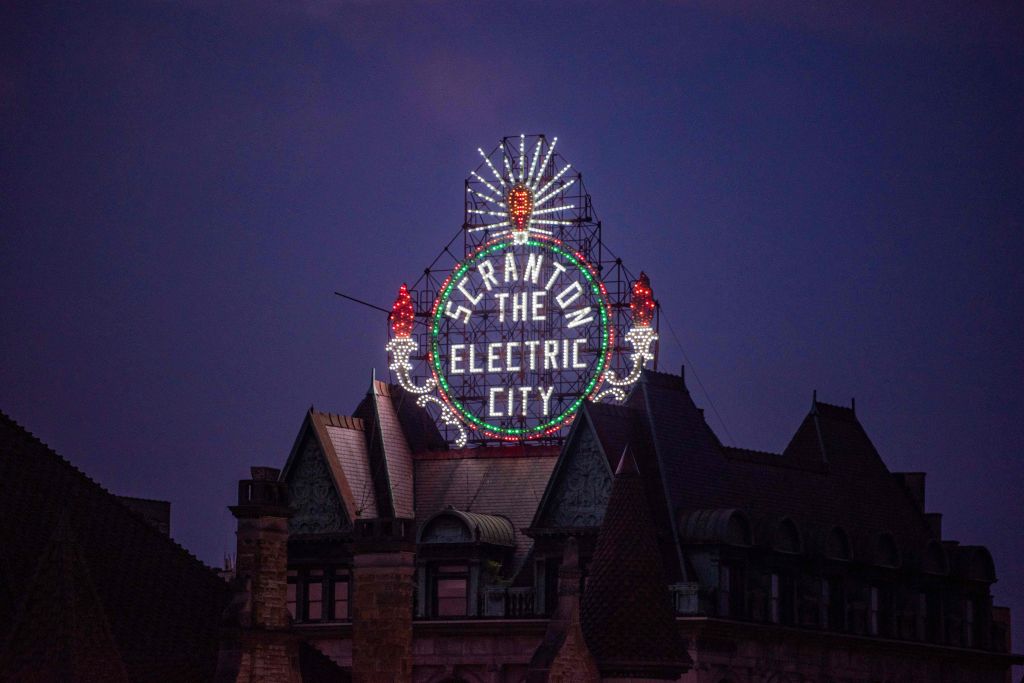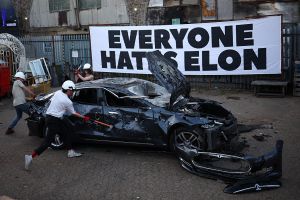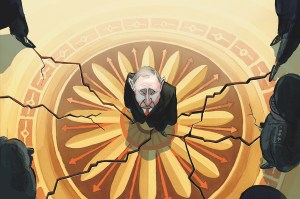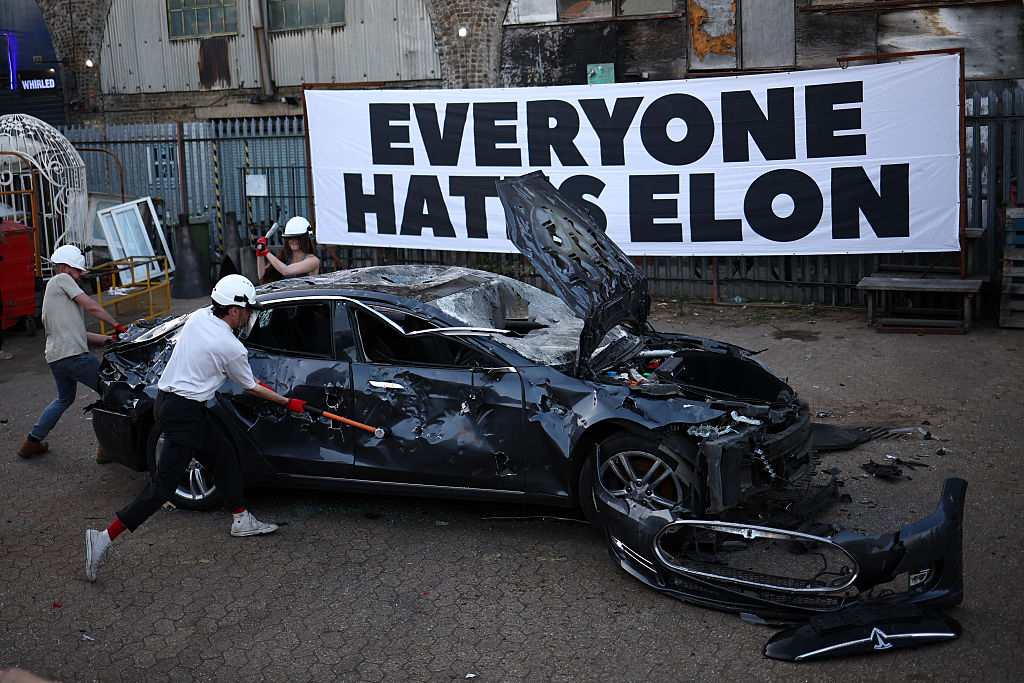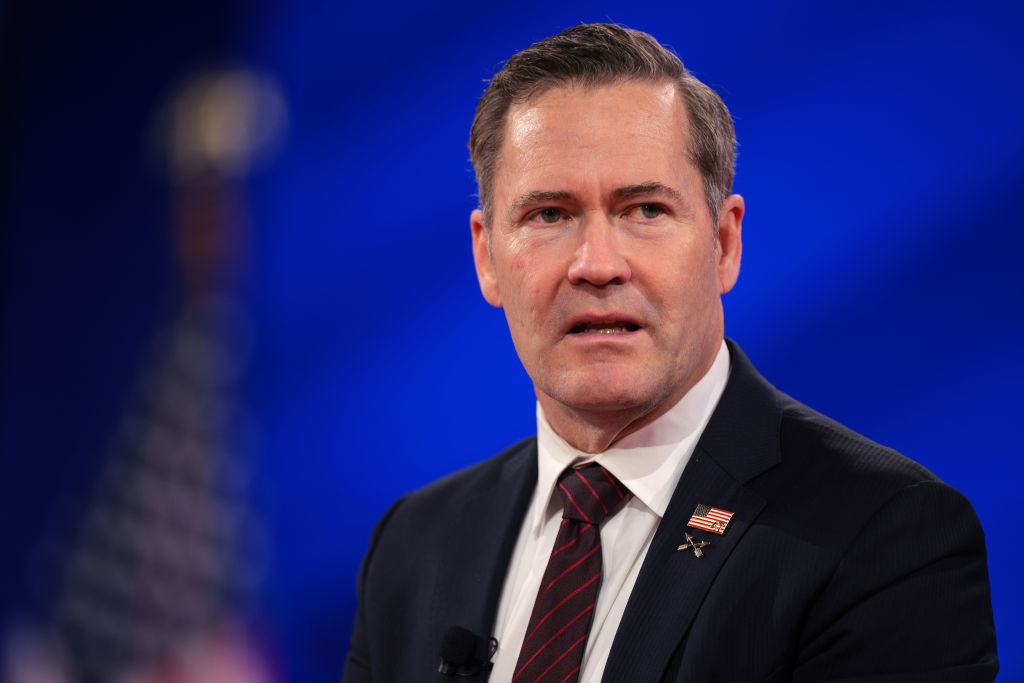Our big adventure this summer was supposed to be a trip to the Capri for a young friend’s wedding, but there was a hitch in the plan. You see, in my six decades on this orb I never have gotten the hang of this whole money thing. (Whose idea was it, anyway?) But I am blessed in countless ways, not least by having married a woman who, when she moved east from Los Angeles, expressed a wish to see two places: Cleveland and Utica. So Lucine and I hitchlessly shifted to Plan B. Capri was out, replaced by an overnight in Scranton, Pennsylvania, followed by a visit to Centralia, the Keystone State’s ghost town, under which a coal-mine fire has burned since 1962.
Don’t think that I was acting out of tightfistedness. Rather, our trip was consistent with the aphorism of midcentury Western historian and essayist Bernard DeVoto: “Why see Paris, France, if you haven’t seen Paris, Illinois?”
I have long nursed a hypocritical disdain for travel, adverting in a pinch to the occasionally peripatetic American sage Ralph Waldo Emerson, who between far-flung lecture gigs declared, “I am not much an advocate for traveling, and I observe that men run away to other countries because they are not good in their own, and run back to their own because they pass for nothing in the new places. For the most part, only the light characters travel. Who are you that you have no task to keep you at home?”
So in opting for Pennsylvania over Capri we were acting in conformance with Transcendentalist principles.
(I once tried out the anti-travel argument on the philosopher Thomas Molnar. He wasn’t buying it, and my case was undermined by the fact that we were chatting in the Prague airport, 4,200 miles from home.)
Best known today as the setting of the intermittently witty TV show The Office, Scranton has plenty of impressive late nineteenth and early twentieth-century buildings. Fittingly for this hometown of Jane Jacobs, urban renewal’s most incisive and soulful critic, Scranton knocked down less of its past in the 1960s than did most midsized cities.
We stayed at the Lackawanna Station Hotel, a converted 1908 French Renaissance-style train station reputedly haunted by the spirits of those whose bodies once reposed in an underground morgue. Fortified by refreshment in the hotel bar, we made an intrepid late-night foray morgueward, but our all-too-trepid sides prevailed, and the ghosts went undisturbed. The Lackawanna Station Hotel cost us about $150 for the night, which might have covered one-tenth of the price of a dog-kennel Airbnb on Capri. We also toured the excellent Steamtown National Historic Site, which even this non-train buff enjoyed.
Pennsylvania ranks fifth in the nation in the percentage of its residents (71) who were born in the state. Bravo! (Last, predictably, is Nevada at a pathetic 25 percent.) And while we’re at it, a beleaguered little city in Pennsylvania owns the most fascinating statistical pairing in my ken: at one point in 1983, Johnstown had the highest unemployment rate and the lowest crime rate in America. Someone oughta study that one.
We couldn’t leave the Electric City without a drive-by of the middle-class house in which native son Joe Biden spent his first decade. It was pleasingly ordinary. Unlike Plains, Georgia, in the late 1970s, Scranton is wholly untouristed. Joe, you’re no Jimmy Carter.
I recall the Joe Biden whom I heard and saw in the Senate many times in the early 1980s. He was considered by one and all to be a lightweight blowhard. Not evil, just a fool who liked to hear himself talk and had a higher opinion of his intellectual gifts than evidence would warrant. Biden might have lived a useful life as a drinking companion, a baseball dad, even president of the Scranton Rotary Club, had he not devoted his life to the pursuit and exercise of power. That corrupts even the best of them, and Joe Biden was far from the best of them.
Heading home, we detoured to Centralia, the long-abandoned coal-mining town. Padding through the ruins, over curbs and foundations hidden under weeds and high grass, one felt as if dropped into an episode of The Walking Dead. Or perhaps we were staggering through the aftermath of the nuclear exchange that Biden & Co. seem capable of provoking. There is a romantic quality to imagined desolation, but the real thing appeals not. I do wish Joe had never left Scranton.
This article was originally published in The Spectator’s September 2023 World edition.



